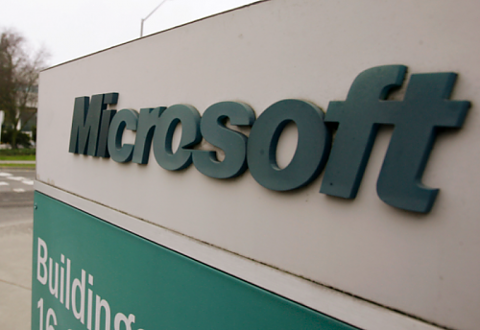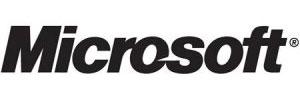
I've been wanting to write about the potential success of Windows 8 but I didn't have a reason, or probably I was just too lazy. But after reading an interesting article in LaptopMag, I've finally been inspired enough to discuss whether I think it it will be a success, or not. The first thing I don't like is that Windows 8 is being released a mere three years after the original Windows 7 was released. I installed Windows 7 on January 2011 and I don't want to dump a great operating system just to follow Microsoft's plans and vision. I love Windows 7 and after a year and a half of intensive use, I've only had one virus. I solved the problem by using the System Restore feature because the virus had infected an important system file. Since it has proven itself, I won't hurry to install Windows 8, that's for sure. I might wait for the service pack version and maybe after that, I would consider installing it. Windows 8 has some good features and my colleague Don Willmott wrote about them perfectly in a recent
post and included; performance,
fast boot times, always on, always connected, security and redesigned task manager. I would add image password, close app automatically, safe download, iso files mounting and pause file copies to the list as well.
What about the Windows 8 interface?
In the LaptopMag piece, Raluca Budiu, a Nielsen Norman Group user experience specialist, said that while she personally used Windows 8, productivity tasks on the PC were lacking and that Windows 8 was less user friendly than its predecessors. Although I've never used Windows 8, I tend to agree with Raluca. Microsoft is trying to make an operating system that everyone will find easy to use, much like Apple did with iOS. They want to minimize certain tasks and eliminate older elementary features. It's okay but not for the PC version. iOS runs on tablets, smartphones and music players, while Windows 8 should first be built to work for a PC and afterwards, tweaked for tablets and smartphones. It's a great idea to change things but I don't need the confusion of a
Windows 8 interface. I don't want
Microsoft to kill the Start button just to force me to use their new-fangled interface either. I think Microsoft wanted Windows 8 to work like a sandwich of all existing platforms, just like Android did with Ice Cream Sandwich. Their operating system has features that work separately on three different platforms, so it ended up making a content consumption product. Raluca thinks the same thing:
It’s easy to share a news story through email or with friends on Facebook. But, I am not sure that these are the tasks that people do most often on a PC. Windows 8 is optimized for content consumption rather than content production and multitasking. Whereas content consumption can easily be done on other media (tablets and phones), production and multitasking are still best suited for PCs. Windows 8 appears to ignore that.
Asked how switching back and forth between modern and Desktop environments will affect users, she gave an interesting response.
Users will need to remember two different interfaces. They will learn Windows 8, but won’t be able to forget Windows 7. And they will need to keep track of which app goes with each framework. [It's] definitely a cognitive burden, but not an insurmountable one.
Another problem is the Windows 8 Switcher, which displays each modern styled app with a unique thumbnail, but groups them into a single thumbnail, theoretically making the desktop itself an app.
It is confusing, because users have to remember what they’re running in the desktop and go back to that app to resume editing a document in Word, for instance, or creating a chart in Excel. In general, switching between apps is costly for the users – you have to go to the start page, then select the app, and then, for those apps running in the desktop, go to desktop and select it from there. Compare that with older versions of Windows – just one click was needed to choose the running app from the task bar.
It's still too early to anticipate user reaction but I hope Windows 8 will not end like Windows Vista, as a big fail. Let's hope that on
Oct. 26, Microsoft will start surprising us again.
Related Links
 I've been wanting to write about the potential success of Windows 8 but I didn't have a reason, or probably I was just too lazy. But after reading an interesting article in LaptopMag, I've finally been inspired enough to discuss whether I think it it will be a success, or not. The first thing I don't like is that Windows 8 is being released a mere three years after the original Windows 7 was released. I installed Windows 7 on January 2011 and I don't want to dump a great operating system just to follow Microsoft's plans and vision. I love Windows 7 and after a year and a half of intensive use, I've only had one virus. I solved the problem by using the System Restore feature because the virus had infected an important system file. Since it has proven itself, I won't hurry to install Windows 8, that's for sure. I might wait for the service pack version and maybe after that, I would consider installing it. Windows 8 has some good features and my colleague Don Willmott wrote about them perfectly in a recent post and included; performance, fast boot times, always on, always connected, security and redesigned task manager. I would add image password, close app automatically, safe download, iso files mounting and pause file copies to the list as well.
I've been wanting to write about the potential success of Windows 8 but I didn't have a reason, or probably I was just too lazy. But after reading an interesting article in LaptopMag, I've finally been inspired enough to discuss whether I think it it will be a success, or not. The first thing I don't like is that Windows 8 is being released a mere three years after the original Windows 7 was released. I installed Windows 7 on January 2011 and I don't want to dump a great operating system just to follow Microsoft's plans and vision. I love Windows 7 and after a year and a half of intensive use, I've only had one virus. I solved the problem by using the System Restore feature because the virus had infected an important system file. Since it has proven itself, I won't hurry to install Windows 8, that's for sure. I might wait for the service pack version and maybe after that, I would consider installing it. Windows 8 has some good features and my colleague Don Willmott wrote about them perfectly in a recent post and included; performance, fast boot times, always on, always connected, security and redesigned task manager. I would add image password, close app automatically, safe download, iso files mounting and pause file copies to the list as well.


